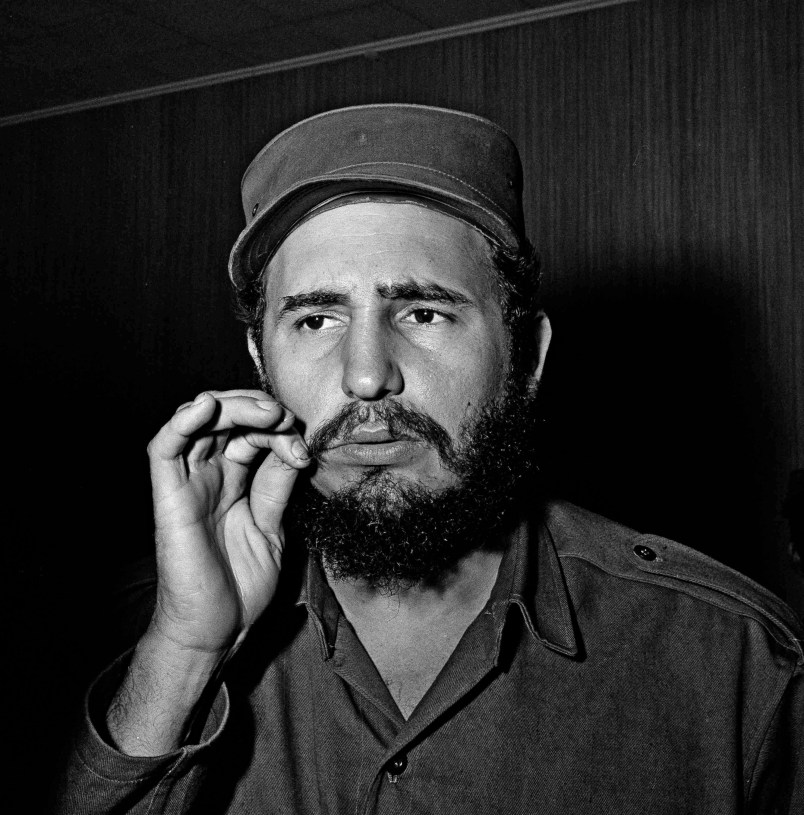I am not going to try to assess Fidel Castro’s historical significance. I’ll leave that to people who know the history of Latin America better than I do. But I want to make one historical and a personal comment.
The New York Times subheads its decent story about Castro, “The Man Who Brought the Cold War to the Western Hemisphere.” That’s entirely untrue. Well before Castro and Che Guevara stepped on the world stage, the U.S. was involved in overthrowing governments in Latin America on the grounds that they were too close to “communism.”
In 1954, the CIA engineered a coup in Guatemala to overthrow its democratically elected social democratic government, whose labor reforms had run afoul of the United Fruit Co. In its place, the US installed a military dictatorship. Castro was the first Latin America leader to defy the dominance of American corporations in the region and to get away with it. That’s a big reason why he remains a hero in Latin America to people who have and had no love for Soviet communism nor supported the kind of dictatorship that Castro erected in Cuba.
The Cuban revolution was also hugely important to the development of a new left in the United States. It was the first crack in the façade that liberal Cold Warriors had erected to justify American intervention abroad in place in places like Guatemala and Iran and contributed to the early skepticism that many of us had about American intervention in Vietnam. In my own case, I’d trace my first inkling that something was wrong with US foreign policy to an article in the very early ‘60s that the New Republic (well before the Marty Peretz era) published about the Cuban revolution.
Castro was also the reason for my first big fight with my father over politics. He and my mother were visiting me in Berkeley in late 1964, I think, and my girlfriend and I had a photo of Castro, looking somewhat like Jesus, on the wall of our apartment. My father saw it and ripped it down. We didn’t talk for a year after that. He was sort of a Richard J. Daley Democrat, but I had never seen him agitated about politics before. I recall that just to say what a very big deal Fidel Castro was to people like me in the early 1960s.






